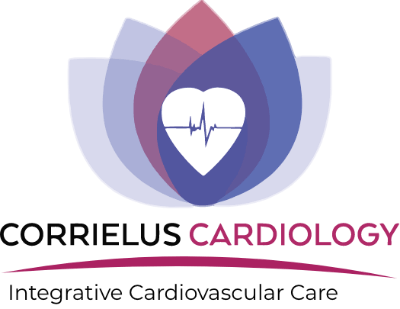Mitral valve regurgitation is a common cardiac disorder characterized by improper mitral valve closure, resulting in the backward flow of blood. It is the most common type of heart valve disease. It can leave you feeling very tired and short of breath.
At Corrielus Cardiology, we are committed to your heart health and overall well-being. We provide top-quality care when it comes to detecting and treating heart conditions.
Dr. Corrielus is a leading Philadelphia cardiologist who takes great pride in providing the Philadelphia community with excellent service and care.
The heart is a complex organ with a structure composed of multiple chambers, valves, and associated vessels. There are four critical valves: the aortic, mitral, tricuspid, and pulmonary valves. The job of these valves is to control the direction of blood flow through the heart, and their opening and closing produce the heart-beat sounds.
The mitral valve, which is located between the left atrium and the left ventricle, plays a crucial role in maintaining proper blood flow direction. However, when this valve does not close correctly, a condition known as mitral valve regurgitation occurs.
Mitral valve regurgitation, also known as mitral regurgitation (MR), mitral insufficiency, or mitral incompetence, is the most common type of heart valve disease.
When the mitral valve doesn't close all the way, the blood flow in your heart is altered. When your heart contracts, the blood flows backward from the lower heart chamber into the upper heart chamber (atrium). This backward flow reduces the amount of blood that flows to the rest of your body, leading to various health complications.
There are two primary types of mitral valve regurgitation:
- Degenerative Mitral Regurgitation: This condition is characterized by a dysfunctional mitral valve with flaps that may droop or bulge, not closing tightly.
- Functional Mitral Regurgitation: This type occurs when an issue outside of the valve, such as diseases of the left ventricle, causes the leakage.
Mitral valve regurgitation often develops slowly, and many people may not experience symptoms for years. However, acute mitral valve regurgitation can occur rapidly, often exhibiting symptoms such as:
- Fatigue, especially during physical exertion
- Heart palpitations or a fluttering sensation in the heart
- Shortness of breath, particularly when lying down
- Swelling of feet or ankles
If you experience any of these symptoms, you should schedule a health checkup immediately.
Mitral valve regurgitation can be due to several conditions that weaken or damage the valve or the heart tissue around the valve. These include:
Additional risk factors may increase your chances of developing mitral insufficiency, such as the use of IV drugs, untreated strep throat, genetic conditions, and aging.
Mitral valve regurgitation diagnosis involves several cardiovascular imaging techniques, including:
The treatment for mitral valve regurgitation depends on the severity of your condition. If you have a mild case, you may not require any treatment. While if you have a severe case of mitral valve regurgitation, you may need medication, catheter procedures, or heart surgery to repair or replace the mitral valve.
If left untreated, this condition can lead to heart rhythm problems or heart failure.
Mitral valve regurgitation is a progressive heart valve disease that requires proper diagnosis and treatment. The condition's progression can be measured by the increase in regurgitated or leaked blood over time.
It is important to be proactive with your heart health by scheduling regular appointments and echocardiograms with your cardiologist, Dr. Sanul Corrielu, especially if you have been diagnosed with mitral regurgitation.
By doing so, any worsening of the condition can be detected early, and appropriate steps can be taken to manage it effectively.
At Corrielus Cardiology, Dr. Corrielus provides high-quality care for individuals with mitral valve regurgitation. Our integrated approach to cardiovascular health prioritizes your overall well-being and quality of life.
To schedule your cardiology consultation, call Corrielus Cardiology at 215-383-5900 or book an appointment online.



